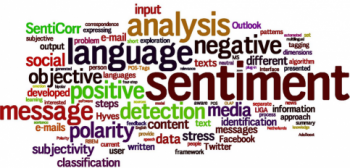While it is obvious that the priority during this pandemic is to cure the sick, to prevent new cases from surfacing and to ensure there are economic and social measures in place to help the people and businesses most afflicted overcome the current situation; without a doubt, in the near future, the analysis of content related to the coronavirus that has been generated by the media and social network users will be the object of research for numerous disciplines such as sociology, philology, linguistics, audio-visual communication, and politics, to name a few.
At MeaningCloud we want to do our bit in this area, by applying our experience and our Text Analytics solutions to analyze the enormous volume of information in natural language, in Spanish and in other languages, in Spain and in other countries, given that, unfortunately, this is a global crisis.
This first article in the series centers on the thematic analysis of content that has been generated in Spanish by digital media platforms in Spain over the last month, how it has evolved during this period of time and the informative positioning of the main media platforms in Spain.
These other articles (only available, at the moment, in Spanish) analyse conversation topics on Twitter in Spain (both from the hashtags and general topics perspective and also applying a specific thematic categorization) and the linguistic analysis of presidential speeches related to this crisis.
Continue reading →

 One of the most common and extensively studied knowledge extraction task is text categorization. Frequently customers ask how we evaluate the quality of the output of our categorization models, especially in scenarios where each document may belong to several categories.
One of the most common and extensively studied knowledge extraction task is text categorization. Frequently customers ask how we evaluate the quality of the output of our categorization models, especially in scenarios where each document may belong to several categories. This post presents MeaningCloud’s vision on the state of Natural Language Processing technology by the end of 2019, based on our work with customers and research projects.
This post presents MeaningCloud’s vision on the state of Natural Language Processing technology by the end of 2019, based on our work with customers and research projects.




